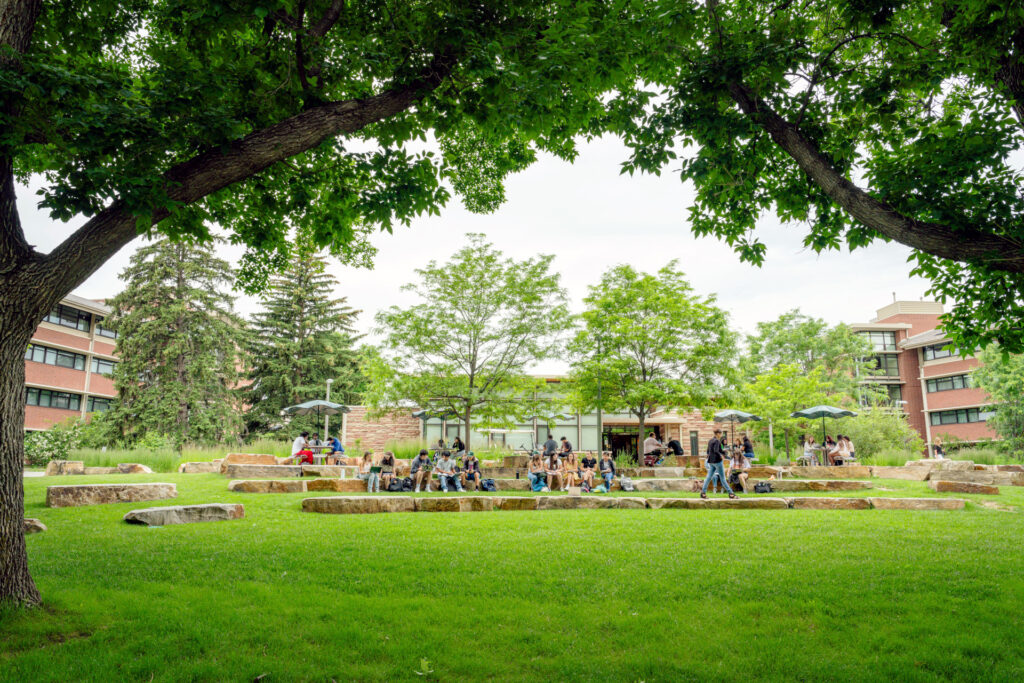
Colorado State University faculty will design or reconfigure 11 new interdisciplinary climate and sustainability courses to meet the needs of the next generation of climate change and sustainability experts.
The School of Global Environmental Sustainability partnered with CSU’s President’s Sustainability Commission and CSU’s Climate Initiative to award more than $100,000 for the coursework updates. The projects are designed to allow faculty to creatively integrate global social/economic/environmental sustainability concepts into new or existing courses.
The grants seek to integrate social-environmental-economic education into all fields to make sure future leaders are equipped with the knowledge to make progress toward solving global challenges no matter their academic focus.
“The university is making a concerted effort to integrate climate and sustainability concepts into coursework and increase the literacy of our students in these areas,” said Aleta Weller, senior research and engagement officer at SoGES. “This is a nice example of how CSU is working to expand the curriculum and offer new opportunities to students to grapple with global issues. All students should leave the university being able to translate knowledge from their field to make change in the world.”
A look at the new coursework projects:
Sustainability Curriculum Innovation Grants
Communicating Sustainability: The Fashion Context
Faculty: Samuel Tham, journalism and media communication; Ruoh-Nan (Terry) Yan, design and merchandising.
Summary: This course will highlight the importance of three areas of sustainability in fashion – social, environmental, and economic – with an emphasis on environmental impact. Students will learn to create promotions within the digital framework and learn to craft sustainability messaging.
Experiential Learning of Topics in Sustainability for First-Year Students in Chemical and Biological Engineering
Faculty: Brad Reisfeld, chemical and biological engineering; Minnie Piffarerio, chemical and biological engineering.
Summary: The principal aim of this proposed project is to introduce novel, hands-on experiments focused on sustainability into the first-year Intro to Chemical and Biological Engineering Lab course.
Fostering Sustainable Laboratory Practices in Green Chemistry
Faculty: Akiko Nakamura, chemistry; Carlos Olivo-Delgado, chemistry.
Summary: This course will provide more experiential opportunities to improve students’ learning opportunities in upper-level undergraduate chemistry laboratory coursework.
Global Studies Through Data Course in International Studies
Faculty: Julia Lee, political science; Meagan Todd, international studies.
Summary: This course will work actively with data in the context of key issues in international studies and sustainable development such as environmental issues, climate change, economic growth, health and well-being. The aim is to improve data literacy and quantitative reasoning approaches to sustainable development.
Sustainability Strategies for Western Ranches Across Changing Social, Economic and Environmental Landscapes
Faculty: Anthony Vorster; William H. Romme, both in the Natural Resource Ecology Laboratory.
Summary: A key component is a 20-day summer field course during which graduate students visit 8-10 ranches in southern Colorado and northern New Mexico.
Climate Initiative Curriculum Innovation Grants
Building Community Resilience to Climate-Related Health Threats
Faculty: Maggie Clark, environmental and radiological health sciences; Danyel Addes, The Institute for Learning and Teaching.
Summary: This proposed course will use experiential learning to provide Environmental and Public Health students the skills to translate global climate change and health needs into actions in local contexts and provide them with an understanding of critical theories, models, and practices of community engaged learning.
Centering Climate Change as the Unifying Theme of a Geoscience Degree
Faculty: Jeremy Rugenstein; Sean Gallen; Daniel McGrath; Sara Rathburn; William Sanford; Lisa Stright; Rick Aster, all in geosciences.
Summary: These two proposed linked courses will teach students within an Earth system science framework how climate change modifies and is modified by the various spheres (atmosphere, hydrosphere, geosphere, biosphere) that constitute Earth’s interior, surface, and atmosphere.
Epistemology and Values in Climate Science and Sustainability
Faculty: Collin Rice; Katie McShane, both in philosophy.
Summary: This new course will merge methods of data collection, modeling and inferences studied by philosophers of science with value judgments investigated by environmental ethicists.
Graphic Greenprints: Sustainability Stories in Marginalized Worlds
Faculty: Maricela DeMirjyn, ethnic studies; Aparna Gollapudi, English.
Summary: This interdisciplinary course on comics and graphic novels about sustainability and climate change will focus particularly on perspectives and experiences of communities of color and Indigenous peoples and how to create their own graphic narratives to foster real change.
Introduction to Carbon Finance
Faculty: Lauren Gifford, Soil Carbon Solutions Center.
Summary: Students will be introduced to concepts that include carbon markets and offsets, ecosystem services, natural capital investment and more. This interdisciplinary course covers topics like the net-zero movement, climate tech, and the role of non-state actors in shaping climate policy.
Introduction to Environmental Humanities
Faculty: Andrea Duffy, history; Lynn Badia, English; Sushmita Chatterjee, ethnic studies.
Summary: This course will draw from multiple areas of expertise in the humanities such as English, ethnic studies, history and philosophy and leverage a wide range of faculty and student interests to familiarize graduate students with the key concepts, methods and value of this interdisciplinary field.